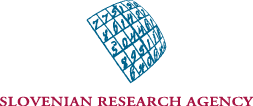New psychoactive substances monitoring system in Slovenia (acronym SONDA)
Code:
V3-1636
Range:
01. January 2016 - 31. December 2018
Leader:
Lucija Peterlin Mašič
Field:
3.03 Medical sciences/ Neurobiology
Research Organisation:
https://cris.cobiss.net/ecris/si/en/project/10337
Researchers:
https://cris.cobiss.net/ecris/si/en/project/10337
Content:
https://cris.cobiss.net/ecris/si/en/project/10337
Abstract:
During the last 10 years, the number of new psychoactive substances (NPS) has increased almost exponentially to the present situation with more than one new substance being detected and reported every week. Most of these NPS are synthetic. NPS are divided into five major groups: phenethylamines (including cathinones), piperazines, piperidines, tryptamines and synthetic cannabinoids. The consumption of new psychoactive substances (NPS) has been rapidly increasing for over a year in Europe, especially among teenagers and young adults, as NPS cause euphoria, create a sense of energy and relaxation, and stimulate the need to socialize. Poisonings following NPS abuse are unpredictable and may occur even upon consuming the recommended dosage, since NPS are produced in illegal laboratories and their exact chemical composition is not known. The information regarding their toxicity and chronic adverse health effects is still very scarce or even unknown. Therefore, some national projects for monitoring the consumption of NPS and the occurrence of poisonings with NPS are already being carried out in EU. In addition, the European Commission has presented a project called Euro-DEN, wish is to link up all national projects on NPS. Within the project we are planning to develop a national system for continuous monitoring of NPS poisonings where by collecting biological samples in all suspected cases of acute NPS intoxications and performing qualitative toxicological analyses. In the first part of the project we are planning to link a 24/7 clinical toxicology consulting service at the Centre for Clinical Toxicology and Pharmacology (CCTP) with the network of all emergency departments and intensive care units in Slovenian hospitals with the aim of gathering biological samples (blood and urine) of all patients poisoned with NPS in one place (the laboratory of CCTP). When emergency department or hospital staff is going to consult with the Centre for Clinical Toxicology and Pharmacology (which serves health care providers) on suspected cases of acute NPS intoxication, they will be asked to collect blood and urine samples as soon as possible after admission for free-of-charge toxicological analysis within the project. In Slovenia, physicians are supposed to take blood and urine samples for toxicological analysis together with other blood samples for laboratory analysis (electrolytes, enzymes) as soon as possible in all cases of acute intoxications, since some toxins could be detected in blood and urine only a short time after exposure. However, in most such cases subsequent toxicological analysis is not needed for the treatment of intoxicated patients and the biological samples are often discharged after a few days without any analysis. As a result of this project, blood and urine samples of all NPS poisoned patients will be sent to CCTP, where they will be stored at - 50C. We are planning to collect only blood samples that would be otherwise be discharged, and the treatment of poisoned patients will not depend on their participation in the project. Afterwards, we are planning to analyze collected and frozen biological samples using liquid chromatography-mass spectrometry multicomponent methods in the Toxicological laboratory of the Institute for Forensic Medicine. If necessary, we are going to improve or develop detection techniques for new substances. The advantage of the project is also the collection of medical records along with basic clinical and laboratory biochemical parameters at discharge. This will enable us to link clinical presentation and treatment to the identified NPS by liquid chromatography-mass spectrometry. In the second part of the project we are planning to organize the training of physicians and registered nurses about clinical presentation, diagnostic and treatment of NPS poisoning using results of the first part of the project.
Phases:
https://cris.cobiss.net/ecris/si/en/project/10337
Bibliographical references, arising directly from the implementation of the project:
https://cris.cobiss.net/ecris/si/en/project/10337
Financed by:

Research projects (co)funded by the Slovenian Research Agency.
Changed: 28. April 2023